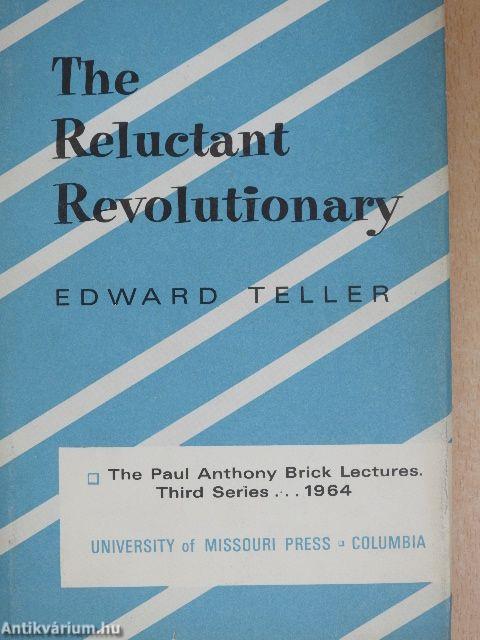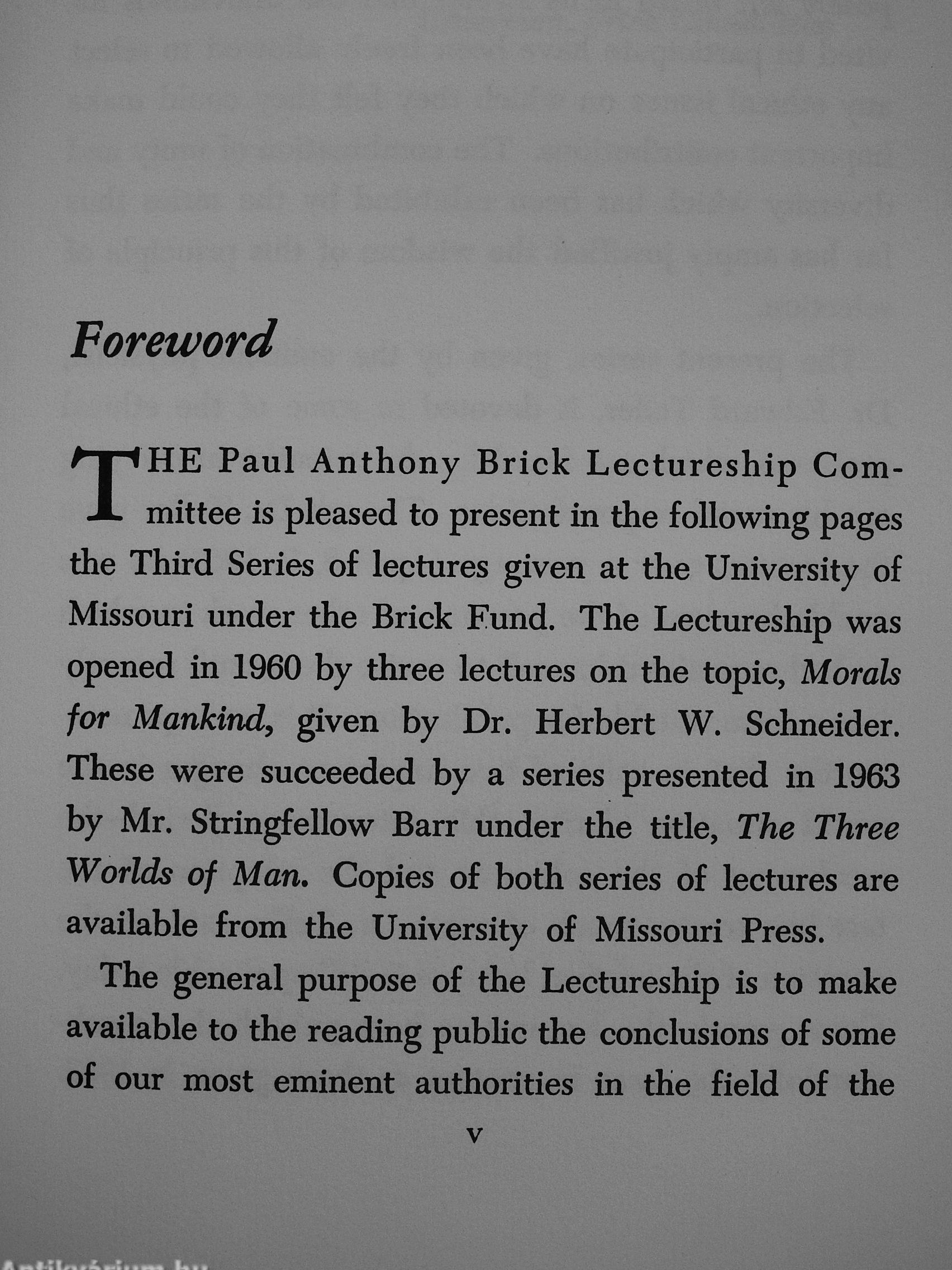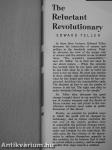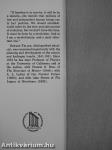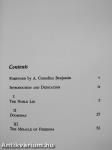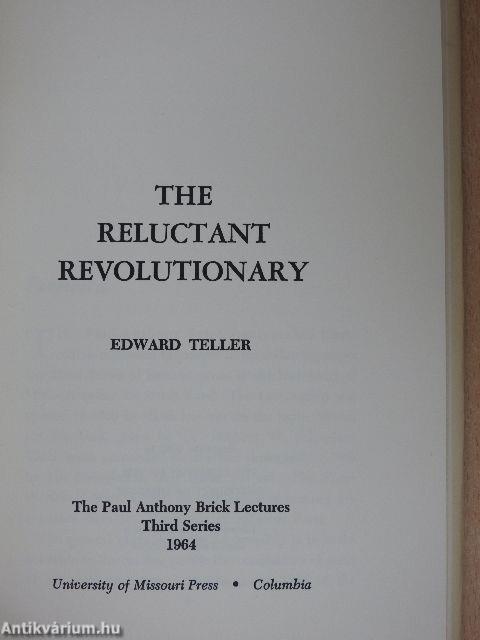1.062.618
kiadvánnyal nyújtjuk Magyarország legnagyobb antikvár könyv-kínálatát

VISSZA
A TETEJÉRE
JAVASLATOKÉszre-
vételek
The Reluctant Revolutionary
| Kiadó: | University of Missouri Press |
|---|---|
| Kiadás helye: | Columbia |
| Kiadás éve: | |
| Kötés típusa: | Vászon |
| Oldalszám: | 71 oldal |
| Sorozatcím: | The Paul Anthony Brick Lectures |
| Kötetszám: | |
| Nyelv: | Angol |
| Méret: | 21 cm x 14 cm |
| ISBN: | |
naponta értesítjük a beérkező friss
kiadványokról
naponta értesítjük a beérkező friss
kiadványokról
Előszó
TovábbFülszöveg
ih:^ .!I
',7' !
. ' i i.U /.
: ¦ i , I
The
Reluctant Revolutîonaiy
EDWARD TELLER
In these three lectures, Edward Teller discusses the interaction of science and politics in the twentieth century. First, he advances his view of the proper role of science and the scientist in our troubled times. "The scientist's responsibility," says Dr. Teller, "is to find out what he can about nature When the scientist has learned what he can leam and when he has built what he is able to build his work is not yet done. He must also explain in clear, simple, and imderstandable terms what he has foimd and what he has constructed. And there his responsibility ends. The decision on how to use the results of science is not his. The right and duty to make decisions belongs to the people."
Dr. Teller then discusses the great change brought about in our world by the use of nuclear weapons and the threat of future nuclear war and points to the contribution scientists must make in public... Tovább
Fülszöveg
ih:^ .!I
',7' !
. ' i i.U /.
: ¦ i , I
The
Reluctant Revolutîonaiy
EDWARD TELLER
In these three lectures, Edward Teller discusses the interaction of science and politics in the twentieth century. First, he advances his view of the proper role of science and the scientist in our troubled times. "The scientist's responsibility," says Dr. Teller, "is to find out what he can about nature When the scientist has learned what he can leam and when he has built what he is able to build his work is not yet done. He must also explain in clear, simple, and imderstandable terms what he has foimd and what he has constructed. And there his responsibility ends. The decision on how to use the results of science is not his. The right and duty to make decisions belongs to the people."
Dr. Teller then discusses the great change brought about in our world by the use of nuclear weapons and the threat of future nuclear war and points to the contribution scientists must make in public discussion of this threat.
Finally, as scientist he predicts ways in which the world will be changed by technology, and as citizen confronts the real core of the world's problem—how to accomplish the political changes necessary if that world is to be one of law and order and freedom for the individual. He calls upon the free citizens of the democracies to address themselves urgently to this problem, for he believes that it must be solved within a century, and he suggests possible first steps toward a solution.
"If freedom is to survive, it will be by a miracle—the miracle that millions of free and independent human beings can in fact perform. We should establish world order by the slow and safe process of evolution, but we don't have the time. It must be done by a revolution. And so I am a revolutionary, and a most reluctant one."
Edward Teller, distinguished physicist, was concerned importantly with the planning and development of the atomic and hydrogen bombs, 1941-1951. Since 1953 he has been Professor of Physics at the University of California and is the author, with Francis O. Rice, of The Structure of Matter (1948); with A. L. Latter of Our Nuclear Future (1958); and with Alan Brown of The Legacy of Hiroshima (1962).
lu >
t
Of
U>
o c
Vissza
Témakörök
- Idegennyelv > Idegennyelvű könyvek > Angol > Műszaki
- Idegennyelv > Idegennyelvű könyvek > Angol > Természettudományok > Fizika
- Műszaki > Ipar > Nehézipar > Energiaipar > Atomenergia
- Természettudomány > Fizika > Atom- és magfizika > Általában
- Természettudomány > Fizika > Idegennyelvű
- Természettudomány > Fizika > Társtudományok > Műszaki
- Műszaki > Idegennyelv > Angol
- Műszaki > Hadászat, hadtörténet
- Műszaki
Megvásárolható példányok
Nincs megvásárolható példány
A könyv összes megrendelhető példánya elfogyott. Ha kívánja, előjegyezheti a könyvet, és amint a könyv egy újabb példánya elérhető lesz, értesítjük.



